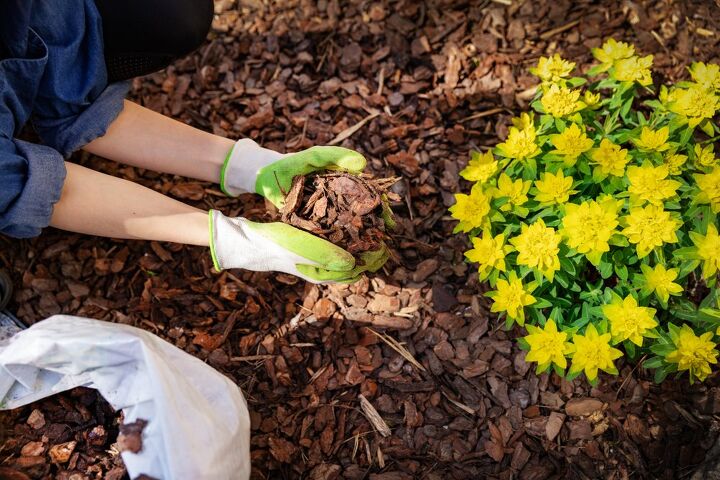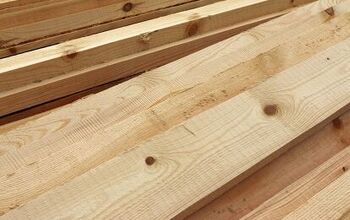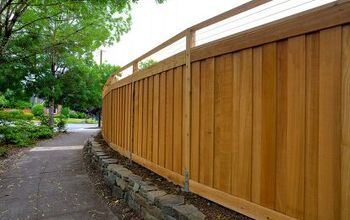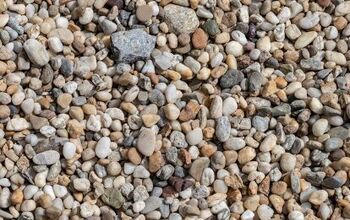Pine Bark Vs. Cypress Mulch: What Are The Major Differences?

Mulch is an essential component as far as creating a healthy and beautiful landscape is concerned. But, with numerous types of mulch at your disposal, there’s a lot to consider when choosing one that suits you best. Pine bark and cypress are two of the most popular mulch types, and each has its benefits and drawbacks.
Cypress mulch is loved for its natural pest resistance, attractiveness, and a pleasant aroma. Nonetheless, it’s more acidic than hardwood mulch, and therefore, needs to be applied moderately. Conversely, pine bark mulch breaks down slower, thus enriching the garden with organic matter over a long time. Nonetheless, it tends to compact with time, thus preventing nutrients and rain from reaching the soil.
The best mulching material is one that suits your needs, both aesthetically and functionally. Both pine bark and cypress mulch may be suitable in some situations and not in others. Thus, it’s best to understand what mulching is and the pros and drawbacks of pine bark and cypress mulch.
Do You Need Landscaping Services?
Get free, zero-commitment quotes from pro contractors near you.

What is Mulching?
Mulching uses straw, crop residues, saw-dust, plastic planes, manure crops, leaves, and other plant materials to improve soil water retention. It also helps to prevent erosion while increasing organic matter in the soil. By nourishing the soil, mulching avails important nutrients to your plants.
Contrary to what you may think, mulching isn’t all about increasing water retention and improving plant health. It also adds an attractive finishing touch to your landscape, besides helping to control weeds and pests. Therefore, it’s best to choose mulching materials according to their functionality, ease of application, and the benefits they offer to your plants. That said, here’s a closer look at pine bark and cypress mulch.
Pine Bark Mulch
As the name suggests, this mulching material comes from pine bark. This is a forestry industry by-product, which is stripped from trees before getting shredded into tiny pieces. Since the bark of a pine tree can’t be used to manufacture paper or lumber, it’s often used for mulching.
Many gardening enthusiasts favor pine bark mulch because it’s long-lasting and provides the soil with organic matter and essential nutrients when it breaks down. With pine bark mulch, you have three size options. These are:
- Pine bark shreds
- Pine bark nuggets
- Pine bark granules
Each size comes with its pros and cons. When you’re considering pine bark mulch, it’s best to choose a size that suits your gardening goals and preferences.
Pine Bark Nuggets
These are the commonest type of pine bark mulch you’ll come across. Pine bark nuggets are often small chunks of wood measuring around 1 inch in length. Thanks to their bulky size and unique shape, pine bark nuggets are a functional and fun choice when it comes to mulching.
If you’re looking for a natural look or prefer a heavily textured finish in your garden, pine bark nuggets will suit you. Besides, this type of pine bark mulch is suitable for those who want a long-lasting color because its decomposition process is slow.
On the flip side, however, pine bark nuggets tend to wash away easily. When water levels rise, they are prone to floating away. Also, pine bark nuggets aren’t suitable for use on slopes or poorly drained areas. Using the nuggets in areas where water tends to collect will leave you with a lot of mess to clean.
Pine Bark Shreds
This mulching material is nuggets that have been shredded into even smaller pieces. Shredded pine bulk is ideal if you want to attain the traditional mulch look with a smooth appearance. In addition, this type of mulch is excellent for retaining water. So, if your locality experiences suppressed rainfall, pine bark shreds will suit you.
Although pine bark shreds are a versatile and effective mulching material, they come with a couple of drawbacks. For instance, you’ll need to refresh the mulch regularly because it decomposes quickly due to its smaller size. The mulch may also acidify the soil since it breaks down faster, hence adding too much acid to the soil. Some plants may not tolerate this.
Pine Bark Granules
This type of mulch is also referred to as fine bark. Pine bark granules add a crumbly texture to the soil, which helps to promote drainage and aeration. You can also use this type of mulch as a top dressing, especially around plants.
However, it’s best to keep in mind that pine bark granules are more of a soil conditioner than mulching material. Even so, they improve soil texture while enriching your garden with much-needed nutrients. Granulated pine bark is also ideal for potting mix.
Benefits of Using Pine Bark Mulch
As far as performing the basic mulching duties is concerned, pine bark mulch is suitable for numerous applications. It reduces weeds, helps with soil moisture, gives the garden an attractive look, and enriches the soil with nutrients.
Pine bark mulch is also readily available. You won’t have trouble finding a suitable type of pine bark mulch for all your mulching needs. Furthermore, it’s easy to find pine bulk mulch meant for both indoor and outdoor plants. Since pine bark is widely available, it’s quite affordable. This is a boon to individuals who have a strict budget or need to mulch a large area.
Cypress Mulch
This mulch is made from the shredded wood of either bald cypress or pond cypress. Just like other types of mulch, cypress mulch helps with weed prevention, water retention, and keeping the soil cool. It can also help control termites, some ants, and cockroaches because cypress contains repellant chemicals such as thujone.
Cypress mulch has an advantage over pine bark mulch due to its heavier weight and dense fibrous texture. The way cypress wood is shredded also makes the mulch effective since the pieces stick together and won’t dislodge in heavy rain. This is why cypress mulch is often referred to as the no-float mulch.
Benefits of Cypress Mulch
Arguably, the most significant benefit of using cypress mulch is that it won’t float away when it rains heavily. This makes it suitable for use in areas with steep slopes. The mulch also comes shredded, and this offers several benefits. For starters, it composts faster, thus releasing essential nutrients to the soil.
Enriches the SoilAs cypress mulch composts, it provides nutrients and organic matter to the soil. It also helps to improve soil structure. Cypress mulch is also more affordable than other organic mulches you’ll encounter, including pin bark mulch. Therefore, it’s available to gardening enthusiasts who are operating on a budget.
Maintains Soil pH LevelsUnlike pine bark mulch, which may alter the pH of your garden soil as it decomposes, cypress doesn’t affect the acidity of the soil. This is because it’s neutral, and therefore, won’t alter the soil’s acidity level and affect your plants’ health.
Prevents Weed and Pest InfestationAlso, no mulching material is as effective as cypress when it comes to preventing weeds. Cypress mulch prevents weed growth and also blocks airborne seeds from reaching the soil and germinating. It also contains repellents that keep pests such as termites off your garden.
Cypress Mulch is AromaticCypress mulch is an attractive soil cover which looks nicer in the garden than most mulching materials. It has a unique and pleasantly fresh smell, which adds an aromatic feel to your garden. Thanks to its dense nature, the mulch won’t get blown away by strong wind or float away in heavy rain. Therefore, you don’t need to reapply the mulch frequently.
Cons of Cypress Mulch
Despite its impressive benefits, cypress mulch has several drawbacks. The biggest of them is that it could harm your plants in the long run. Cypress mulch is fibrous and, therefore, absorbs and retains a lot of water. When used in a locality that experiences little rainfall, it will prevent the water from reaching the soil.
Furthermore, if cypress mulch bakes in the hot sun for too long, it may become too dry to the extent of repelling water rather than absorbing it. When it rains, the water will run off elsewhere rather than seeping through the mulch and into the soil.
Do You Need Landscaping Services?
Get free, zero-commitment quotes from pro contractors near you.

Pine Bark vs. Cypress Mulch: Which is Better?
The decision between pine bark mulch and cypress mulch is a tough one because each of them offers numerous benefits. If you’re looking for versatility, pine bark mulch will suit you because it comes in different forms. However, if you’re looking to save money with a mulching material that lasts longer, cypress mulch suits you.
Choosing between cypress mulch and pine bark ultimately boils down to personal preferences and your gardening needs. Even so, you should also keep your locality’s climate in mind. For example, cypress mulch may not be suitable for use in areas that experience dry weather. Similarly, pine bark mulch isn’t suitable for areas that experience a lot of rainfall.
Before you choose mulching material for your garden, it’s good practice to consult an expert. They will explain the benefits and drawbacks of each material under consideration. Your budget is equally important, and this goes beyond the initial application of mulch because you’ll need to reapply it regularly. If money is an issue, go for mulching material that will last for longer before needing to be reapplied.

We are a team of passionate homeowners, home improvement pros, and DIY enthusiasts who enjoy sharing home improvement, housekeeping, decorating, and more with other homeowners! Whether you're looking for a step-by-step guide on fixing an appliance or the cost of installing a fence, we've here to help.
More by Upgraded Home Team











![The 10 Best Table Saws - [2022 Reviews & Buyer's Guide]](https://cdn-fastly.upgradedhome.com/media/2023/07/31/9070645/the-10-best-table-saws-2022-reviews-buyer-s-guide.jpg?size=350x220)





![How To Reset A Whirlpool Cabrio Washer [In 5 Easy Steps!]](https://cdn-fastly.upgradedhome.com/media/2023/07/31/9076531/how-to-reset-a-whirlpool-cabrio-washer-in-5-easy-steps.jpg?size=350x220)




![10 Most Dangerous Neighborhoods in Baltimore [Updated]](https://cdn-fastly.upgradedhome.com/media/2023/07/31/9075655/10-most-dangerous-neighborhoods-in-baltimore-updated.jpg?size=350x220)




